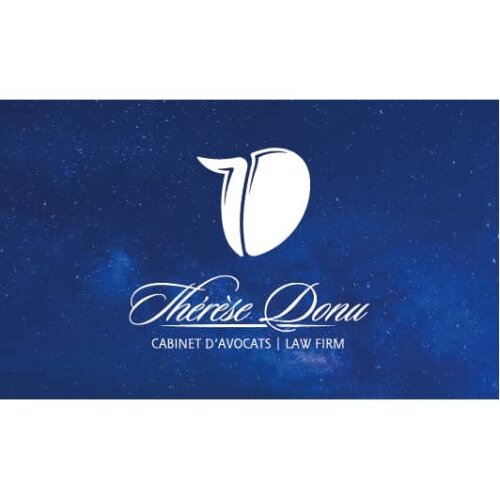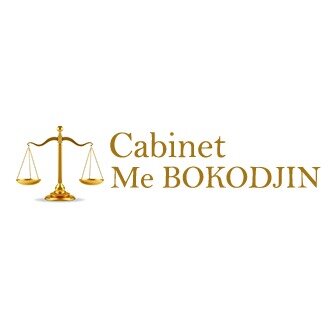Best Project Finance Lawyers in Lomé
Share your needs with us, get contacted by law firms.
Free. Takes 2 min.
List of the best lawyers in Lomé, Togo
About Project Finance Law in Lomé, Togo
Project finance refers to the funding of large-scale infrastructure or industrial projects based on the projected cash flows of the project rather than the balance sheets of its sponsors. In Lomé, Togo, project finance is often used for development in sectors such as energy, transportation, telecommunications, mining, and public infrastructure. Due to its strategic location and growing economy, Lomé has attracted both domestic and international investors seeking to participate in long-term projects. The legal framework for project finance in Lomé is structured to facilitate private investment while ensuring compliance with local regulations and international best practices.
Why You May Need a Lawyer
Project finance transactions are complex and can involve significant legal, regulatory, and financial risks. You may need the assistance of a lawyer in the following situations:
- Drafting, reviewing, or negotiating complex financing agreements with banks or international lenders.
- Navigating regulatory requirements and obtaining necessary permits from government authorities.
- Structuring public-private partnerships (PPPs) or concession agreements.
- Managing risks related to security interests, collateral, and financial close.
- Handling disputes or claims arising during the life of the project.
- Ensuring compliance with local content, environmental, and social regulations.
- Advising on tax implications and repatriation of profits.
- Coordinating due diligence processes and legal audits.
- Assisting with international aspects, such as cross-border transactions or foreign exchange controls.
Local Laws Overview
Several key laws and regulations affect project finance in Lomé, Togo. Project finance in Togo is influenced by both national law and regional frameworks, such as those set by the West African Economic and Monetary Union (WAEMU) and the Organization for the Harmonization of Business Law in Africa (OHADA). Important aspects include:
- OHADA Uniform Acts: These provide rules on company law, secured transactions, bankruptcy, and commercial arbitration, all crucial for structuring and protecting project finance deals.
- Public-Private Partnership (PPP) Law: Togo has specific legislation governing PPP frameworks, concession agreements, and infrastructure investments.
- Public Procurement Code: Sets out procedures for awarding public contracts and guarantees fairness in project allocation.
- Foreign Investment Law: Determines foreign investors' rights and obligations and sets forth procedures for approvals, incentives, and protections.
- Tax and Customs Regulations: Provide details on tax incentives, exemptions, and duties applicable to large-scale projects.
- Environmental and Social Impact Laws: Projects must comply with local requirements regarding environmental assessments and community impact.
- Securities and Collateral Regimes: Outlined by OHADA law, important for securing loans with project assets.
Frequently Asked Questions
What is project finance and how does it work in Lomé, Togo?
Project finance involves raising funds for long-term infrastructure or industrial projects by relying on the future cash flows generated by the project. In Lomé, this is commonly used for sectors like energy, transport, and public infrastructure. The borrower is usually a special purpose vehicle established for the project.
What legal frameworks apply to project finance in Togo?
Project finance in Togo is governed by both national law and regional laws under the OHADA system, which includes regulations on business formation, securities, and insolvency. Specific sectoral laws may also apply, depending on the nature of the project.
What are the typical steps involved in setting up a project finance transaction?
Key steps include conducting due diligence, negotiating and drafting contracts, securing permits, arranging financing with lenders, and structuring security arrangements such as mortgages or pledges over assets.
Can foreign investors participate in project finance in Lomé?
Yes, Togo encourages foreign investment. Foreign investors must comply with approval processes, and there may be specific requirements or incentives stipulated under Togo's investment code.
What risks should I consider in a project finance deal in Lomé?
Risks include changes in regulation, political instability, difficulties with land acquisition, currency exchange issues, and potential disputes over contract performance. Legal advice is essential to identify and manage these risks.
How are disputes in project finance typically resolved?
Disputes can be settled through negotiation, national courts, or arbitration, including under OHADA's arbitration rules or international mechanisms if stipulated in contracts.
Do I need special permits or approvals for my project?
Most project finance deals require multiple government permits, environmental clearances, and possibly approvals for foreign exchange and investment. The required permits will depend on the project's sector and location.
What security can lenders take over project assets in Togo?
OHADA law allows for various security interests, such as mortgages, pledges, or assignments of receivables, to secure loans made for project finance.
Are there tax incentives for project finance in Lomé?
The Togolese government offers several incentives, including tax holidays and customs exemptions, for eligible infrastructure projects. Legal counsel can advise on the specific benefits available for your project.
How can a lawyer help in a project finance transaction?
A lawyer can help structure the transaction, perform legal due diligence, draft and negotiate contracts, secure necessary permits, ensure regulatory compliance, and resolve any arising disputes.
Additional Resources
When considering or pursuing project finance in Lomé, Togo, you may find these resources and organizations helpful:
- Ministry of Economy and Finance: Oversees large-scale projects and approvals.
- Chamber of Commerce and Industry of Togo (CCIT): Provides resources for businesses and investors.
- Investment Promotion Agency (API-ZF): Supports and guides foreign and domestic investors, including project finance initiatives.
- OHADA National Commission of Togo: Offers information and guidance on OHADA business laws and procedures.
- Local law firms and legal consultancies: Experienced with project finance, PPPs, and cross-border investment.
- Development partners (such as the World Bank and African Development Bank): Often involved with project finance and provide regulatory and financial advice.
Next Steps
If you are considering entering into a project finance transaction in Lomé, Togo, it is important to begin by clearly defining your project's goals, analyzing its feasibility, and identifying potential partners or sources of funding. Afterward, seek qualified legal counsel with proven experience in project finance and familiarity with local laws and procedures. Your lawyer can assist you with:
- Conducting a thorough legal due diligence on potential partners and project assets.
- Drafting and reviewing all relevant contracts and financing agreements.
- Navigating government approvals, permits, and regulatory compliance.
- Identifying and mitigating legal and financial risks.
- Ensuring your transaction structure is legally sound and tax efficient.
Document your questions and concerns before meeting with a legal advisor to ensure that your interests are fully protected throughout the project finance process in Lomé, Togo.
Lawzana helps you find the best lawyers and law firms in Lomé through a curated and pre-screened list of qualified legal professionals. Our platform offers rankings and detailed profiles of attorneys and law firms, allowing you to compare based on practice areas, including Project Finance, experience, and client feedback.
Each profile includes a description of the firm's areas of practice, client reviews, team members and partners, year of establishment, spoken languages, office locations, contact information, social media presence, and any published articles or resources. Most firms on our platform speak English and are experienced in both local and international legal matters.
Get a quote from top-rated law firms in Lomé, Togo — quickly, securely, and without unnecessary hassle.
Disclaimer:
The information provided on this page is for general informational purposes only and does not constitute legal advice. While we strive to ensure the accuracy and relevance of the content, legal information may change over time, and interpretations of the law can vary. You should always consult with a qualified legal professional for advice specific to your situation.
We disclaim all liability for actions taken or not taken based on the content of this page. If you believe any information is incorrect or outdated, please contact us, and we will review and update it where appropriate.











